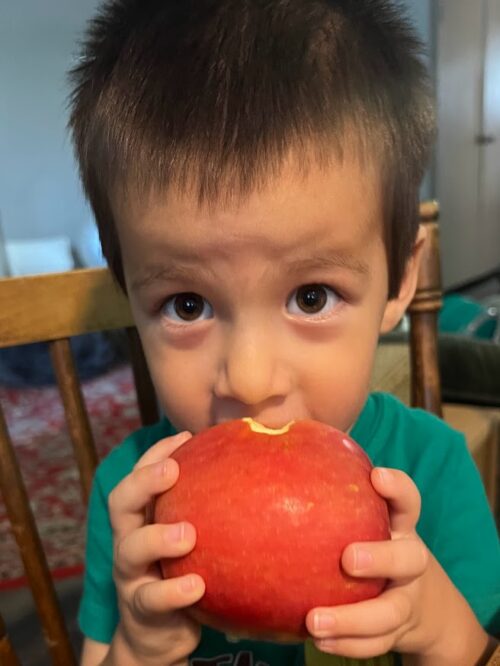Friday, September 23, 2022
Memorial of Saint Padre Pio of Pietrelcina
Naked hope
(click here to listen to or read today’s scriptures)
There is an appointed time for everything, and a time for every purpose under heaven. A time to be born, and a time to die.
Jesuit theologian and scientist Pierre Teilhard de Chardin (1881-1955) prayed to allow his life to unfold in full confidence of God’s presence until the very end:
When the signs of age begin to mark my body (and still more when they touch my mind); when the ill that is to diminish me or carry me off strikes from without or is born within me; when the painful moment comes in which I suddenly awaken to the fact that I am ill or growing old; and above all at that last moment when I feel I am losing hold of myself and am absolutely passive within the hands of the great unknown forces that have formed me; in all those dark moments, O God, grant that I may understand that it is You (provided only my faith is strong enough) who are painfully parting the fibres of my being in order to penetrate to the very marrow of my substance and bear me away within Yourself. (The Divine Milieu, p. 62)
We are like the kernel of wheat, like the acorn nestled in the ground. We are like the apple ripening on the tree.
A time to plant, and a time to uproot, a time to kill and a time to heal, a time to tear down and a time to build.
Padre Pio, our saint for today, famously said to his friends (and everyone was his friend): “Pray, hope, and don’t worry.” Saint Pio (as of June 16, 2002) is known as the patron saint of stress relief and the January blues. Catholic officials in London designated the most depressing day of the year (they decided it was the Monday closest to January 22) as “Don’t Worry, Be Happy” day in honor of the Padre.
Solomon knew his sundial, and he also knew that keeping overclose track of chronos time would kill you. His Song of Time in Ecclesiastes moves us into Kairos time, into the freedom that comes of giving God the reins. Jesus said, “My yoke is easy, my burden is light, come and walk with me in it.” When I let go of my own control, all is well, no matter how it looks at the time.
A time to weep and a time to laugh, a time to mourn and a time to dance. A time to scatter stones, and time to gather them; a time to embrace and a time to refrain from embracing.
Emotions overwhelm me, as they did David. He wrote psalms that augured disaster, and then fell back into the arms of God. His trust of God extended into every crisis, and always prevailed.
Everyone I want to listen to says the same thing. There’s no hurry. But self-awareness stands us in good stead only so long as we find our way into the arms of God, surrendering before we die, not when we die.
Richard Rohr might be thinking of apples on their trees in September when he writes:
Ripening, at its best, is a slow, patient learning, and sometimes even a happy letting go—a seeming emptying out to create readiness for a new kind of fullness—which we are never sure about. If we do not allow our own ripening, an ever-increasing resistance and denial sets in, an ever-increasing protection around an over-defended self. At our very best, we learn how to hope as we ripen. Youthful hopes have concrete goals, whereas the hope of older years is usually aimless hope, hope without goals, even naked hope — perhaps real hope.
Easy to say, really hard to live. Aimless, without, naked … Rohr says, “Some falling apart of the first journey is necessary for this to happen, so don’t waste too many moments lamenting poor parenting, lost jobs, failed relationships, physical challenges, economic poverty, or other tragedies. Pain is part of the deal.”
A time to search and a time to give up, a time to keep and a time to throw away, a time to tear and a time to mend.
Margaret will begin to mentor a younger friend at our church in Austin, Grace Covenant, in a few days. How many years of Christian life experience will precede her? Nearly seventy. She has much more to say than she will say, because she’s learned to listen.
A time to be silent and a time to speak.
When is it time to speak? God knows.
He really does.
(Ecclesiastes 3, Psalm 144, Mark 10, Luke 9)
(posted at www.davesandel.net)
#
